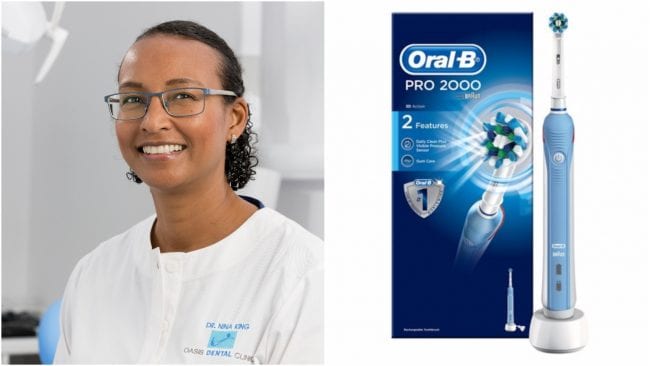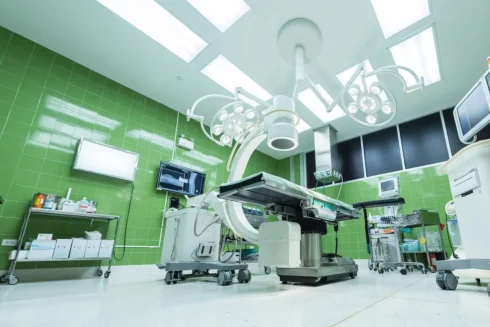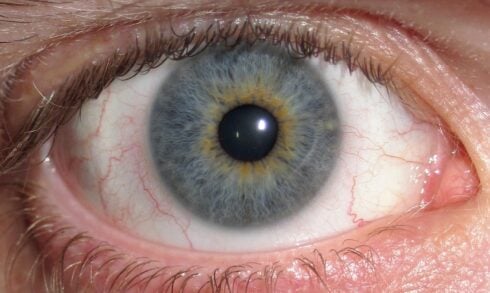
New health columnist Dr Nina King from Marbella’s Oasis Dental Clinic gives us the low down on electric toothbrushes
ELECTRIC toothbrushes have been available for decades but have recently increased in popularity with a confusing array of choices now available.
Hence one must ask if it is worth spending up to €200 euros for the best all-singing, all-dancing power brush instead of €3 on a manual brush?
As a dentist, my primary concern is that patients remove plaque effectively from surfaces of their teeth and gums daily.
If they don’t, then bleeding gums and inflammation develop as the first signs of gum disease. If left untreated this leads to teeth becoming loose, painful and early loss. So, patients must practice effective plaque control to keep healthy teeth for life.
I am therefore an advocate of anything which can help patients do this!
Patients like power brushes, they like the sensation and think features such as a ‘stain removal’ and even the simple timer are very helpful.
Two minutes of brushing is a lot longer than most people realise! And, if you have just invested in a shiny, new power brush or been lucky enough to have been gifted one, I find patients are more likely to use it.
Hence, I see greater compliance and therefore improved gum health when switching to an electric brush.
 Research also strongly supports my clinical experience; numerous trials have shown that powered toothbrushes can be up to 49% better at plaque removal. But not all power brushes are created equal…. Variations exist, e.g. bristle design and technology based on oscillating, vibrating, or ultrasonic. The two market leaders are Oral B: rotating-oscillating (e.g. Oral B 5000), and Phillips Sonicare: Flexcare sonic.
Research also strongly supports my clinical experience; numerous trials have shown that powered toothbrushes can be up to 49% better at plaque removal. But not all power brushes are created equal…. Variations exist, e.g. bristle design and technology based on oscillating, vibrating, or ultrasonic. The two market leaders are Oral B: rotating-oscillating (e.g. Oral B 5000), and Phillips Sonicare: Flexcare sonic.
The largest independent review using international standards (Cochrane) examined more than 30 years of published studies. They concluded that only the rotating-oscillating type toothbrush consistently demonstrated a statistically significant benefit over manual toothbrushes. So, it would seem Oral B comes out on top in the literature.
However, clinically I find most of the mid-range rechargeable brushes (not battery powered/ with simple rotation only) are more effective than manual brushing. Hence, I readily recommend them to all my patients as part of their home care regime.
Click here to read more News from The Olive Press.








